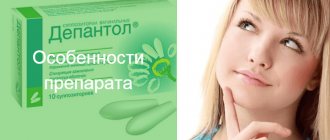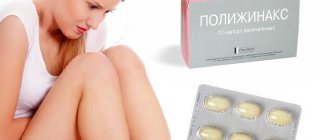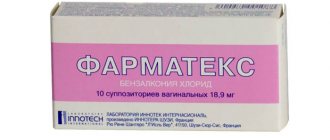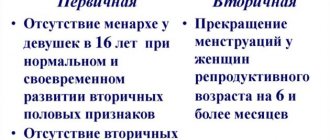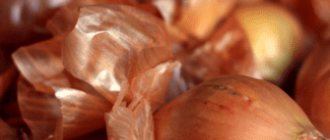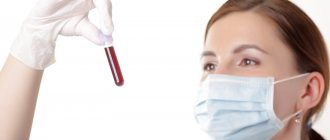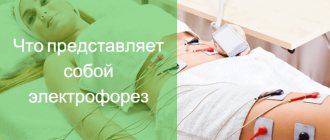Advantages and disadvantages
There are two types of suppositories - anal and vaginal. They are used to treat many gynecological diseases, such as candidiasis, etc. If rectal suppositories have been prescribed, the question of whether they can be used during menstruation disappears by itself. Another thing is vaginal suppositories, they have many advantages, but some cannot be used during menstrual periods.
It is important to read the instructions for use to ensure the effectiveness of the drug during menstruation. If there are no contraindications, you need to consult a doctor and feel free to start treatment. Vaginal suppositories are often used in medical practice and here's why:
- The active substances act locally, the body and all internal organs are not affected.
- No side effects - due to the fact that the suppositories are inserted into the vagina, the risk of side effects is minimal.
- The ability not to interrupt treatment even during menstruation - most suppositories are used on menstrual days. Therapeutic substances constantly reach the right place, kill bacteria and prevent them from multiplying.
- The quality of treatment improves - on critical days, the female body is actively renewed and gets rid of unnecessary tissue. If you use vaginal suppositories during menstruation, recovery will be faster.
- Easy to use - just insert the suppository into the vagina and wait for the effect. There is no need to take pills and keep track of time; the therapy is invisible to the woman, since suppositories are usually administered at night.
Despite all the advantages, suppositories, like any other medicine, have their disadvantages:
- Possible contact of active substances with menstrual flow - on menstrual periods, the acidity of the vagina changes. Some drugs contain components that enter into a chemical reaction with secretion, causing itching, burning and other uncomfortable sensations;
- Change in discharge - often treatment leads to a change in the nature and abundance of menstruation, which greatly worries the woman;
- Washing off medicinal components - during critical days, the internal cavity of the uterus is renewed, which is why the active substances of the suppositories do not have time to act and are excreted along with the secretions. If an infection is detected in a patient, the bacteria are not eliminated, but remain in their place, which is why the disease can become chronic.
Having compared all the pros and cons, we can say that using suppositories is convenient. They gradually kill bacteria by acting locally. If there is an urgent need, treatment with suppositories during menstruation is acceptable, but usually therapy is prescribed at the beginning of the cycle.
Drawing conclusions
In conclusion, let's summarize:
Hexicon suppositories are excellent fighters against various sexually transmitted infections, as well as some gynecological problems. However, they will not bring the expected results during menstruation. Therefore, if possible, try to use the remedy during a favorable period for therapy.
Interesting: Discharge During Pregnancy at 35 Weeks of Pregnancy
You can read about the ineffective treatment with Hexicon suppositories during menstruation on many Internet resources where there are reviews about the use of suppositories.
And, of course, when having sexual intercourse with non-regular partners, it is better to protect yourself with a condom than to then insert a suppository and pray that it will “get through” this time.
Nobody says that you should give it up, because besides all that has been said, it is lovemaking that creates the health of any woman. Therefore, it is recommended to be vigilant in advance and purchase at pharmacies an indispensable remedy for such things - Hexicon suppositories.
Painkiller suppositories
A huge number of girls suffer from painful periods. The pain is difficult to endure, so during this period pain-relieving vaginal suppositories are used during menstruation.
Many of them have an anti-inflammatory effect, having a positive effect on the reproductive system. This fact is very important, since during menstruation all diseases worsen, causing maximum inconvenience.
On critical days you can use the following candles:
- Naproxen is a pain reliever and anti-inflammatory drug.
- Voltaren – eliminates heat, pain and inflammation.
- Indomethacin – relieves inflammation, soothes pain.
- Ketoprofen is an analgesic, anti-inflammatory and pain reliever.
- Diclofenac - relieves swelling, relieves pain, treats gynecological diseases, resists the development of tumors.
The preparations contain substances that do not come into contact with secretions, due to which the effect is maximum. They are not washed off, act quickly and are well tolerated by the body.
Terzhinan during menstruation - what is its effectiveness
Inflammatory processes and diseases of the reproductive system remain pressing problems of modern gynecology. In almost all cases, an integrated approach is required using drugs not only for general action, but also for local use. Preference is given to vaginal preparations, which are available in soft dosage form and completely dissolve upon contact with the mucous membrane. One of the most effective means for treating fungi and inflammation is the drug terzhinan; during menstruation it is resistant to washing off, so it allows for a continuous course of treatment.
Suppositories for thrush
Candidiasis or thrush is a common pathology caused by the Candida fungus. The disease worsens during menstruation, since at this time the microflora of the vagina changes due to hormonal changes and secretion. The fungus is activated, the woman feels unwell and uncomfortable. With candidiasis, many suppositories are washed out, as a result of which the fungus is not destroyed.
There are suppositories that still have a positive effect, and some of them cannot be used during menstruation, these are:
- Terzhinan is a gentle remedy; it is often used to treat candidiasis during menstruation. The main advantage is that the active substances work better in a humid environment; even with heavy periods, you can continue therapy;
- Pimafucin - the drug is not recommended for use on critical days. The components quickly turn into foam, which is easily removed with secretions. In addition, these suppositories during menstruation cause a side reaction in the form of severe itching;
- Clotrimazole - during menstruation, suppositories increase the symptoms of candidiasis. Patients using suppositories complain of itching, and not necessarily due to thrush. The active substances are not washed off, but it is not advisable to use them during menstruation.
Before starting treatment, it is necessary to discuss all the nuances with your doctor, otherwise adverse reactions may occur.
Terzhinan - what experts say about him
Professional doctors in world clinics are well acquainted with this drug, which is manufactured in France by one of the leading pharmaceutical companies. Among topical medicines, terzhinan is used most often, since it is universal in many respects. Experienced experts agree that the drug terzhinan meets the following requirements:
- has a fairly quick effect;
- there are practically no side effects;
- safe and easy to carry;
- does not affect the duration of the menstrual cycle;
- does not have a negative effect on the developing fetus;
- the price of the drug is in the average category of medicines and is affordable for most patients.
Interesting: Pregnancy Test Can Be Done At Any Time
Other drugs
Treatment during critical days requires a special approach; some drugs are effective, others only cause harm. You cannot choose your own treatment; only a doctor can determine the necessary therapy, based on the individual characteristics of the female body.
Description of vaginal suppositories that are allowed and undesirable during menstruation:
- Acylact - the drug restores microflora, promotes the saturation of beneficial bacteria, improves the functioning of the mucous membrane, and protects against the proliferation of pathological microorganisms. The substances are quickly eliminated, so the product is not recommended for use on menstrual days.
- Betadine - if the discharge is scanty, the drug is allowed during menstruation. The product disinfects, kills bacteria, no adverse reactions have been identified. The composition contains iodine, which is quickly absorbed, and glycerin, which is slowly washed out. If the secretion is abundant, the effect decreases.
- Hexicon - prescribed for vaginitis and cervicitis. Suppositories quickly dissolve and the therapeutic effect is lost.
- Depantol - starts regeneration and has an antiseptic effect. It makes no sense to use it on critical days, since the substances are quickly eliminated and the cells are not renewed.
- Genferon - the drug kills bacteria and viruses. For heavy periods, therapy is not recommended, since the components lose their healing power; during the period of using suppositories, pathogenic microorganisms adapt to their environment.
Many suppositories lose their activity during menstruation, so treatment is usually postponed to the beginning of the cycle. If urgent therapy is needed, the doctor selects the most effective drug based on the results of the studies.
Menstrual hygiene products
Many gynecologists are against wearing tampons during menstruation. It is allowed to use tampons only 1-2 times
, for example, for a certain outfit or while visiting the pool (accompanying a child, relaxing with family on the beach). The reasons for the ban are the following:
- high risks of vaginal infection;
unhygienic;
traumatization of the mucous membranes of the cervical canal.
Changing tampons does not always take place in sterile conditions, when it is possible to wash your hands with soap and wash the perineum. When worn for a long time, a warm environment promotes rapid decomposition of blood cells, unpleasant odor, and infection.
During menstruation, it is better to use pads, which should be changed at least every 4 hours. This is necessary for scanty discharge. Excessive bleeding can be controlled using urinary pads.
Rules of use and introduction
Administration must be done carefully and in compliance with hygiene. During menstruation, the uterus is slightly open, so germs can easily penetrate inside and cause complications. The candle can be inserted only after the hands and perineum have been washed. The product is administered in a supine position, after which you need to lie down for 20 minutes so that the components have time to penetrate into the desired area.
Since the suppository is placed overnight, the procedure will not cause any difficulties. Open the package with the product only before use and with clean hands, you can take hygienic gloves. It is important to read the instructions carefully and consult a gynecologist before treatment. The rules of introduction are simple; any woman can cope with the procedure.
You can use candles only if the instructions do not indicate a contraindication in the form of menstruation. Sometimes the doctor prescribes not recommended suppositories even on critical days; the main thing is to strictly follow the doctor’s advice and not interrupt therapy.
Application
To achieve the maximum positive effect and protect yourself from the development of side effects, it is very important to learn how to correctly insert vaginal suppositories. This is especially true for the use of medications during menstruation.
The procedure for introducing a vaginal suppository consists of several main steps, namely:
- First of all, the patient should take a shower and thoroughly wash her genitals.
- Wash your hands with an antibacterial agent and dry with a soft, clean towel. If you are not sure about the cleanliness of your hands, it is better to use disposable medical gloves.
- Carefully open the package of the vaginal suppository. This should be done immediately before using the medicine.
- We lie on our backs, bending our knees. We introduce the candle and remain in this position for 10-15 minutes. This time is enough for the medicine to dissolve and be absorbed into the mucous tissue.
It is best to use vaginal suppositories in the evening, before bed. Bacteria should not penetrate the vagina, so pay special attention to the rules of antiseptics. Pathogenic microorganisms can contribute to the development of dangerous diseases that will have an extremely negative impact on your reproductive health.
Approved products for the local treatment of gynecological diseases, which include suppositories, are often and widely used. But these suppositories have a long period of use, which at a certain stage may coincide with the onset of menstruation.
What to do in this situation, is it worth stopping using them until the end of menstruation, is it possible to put candles during menstruation?
